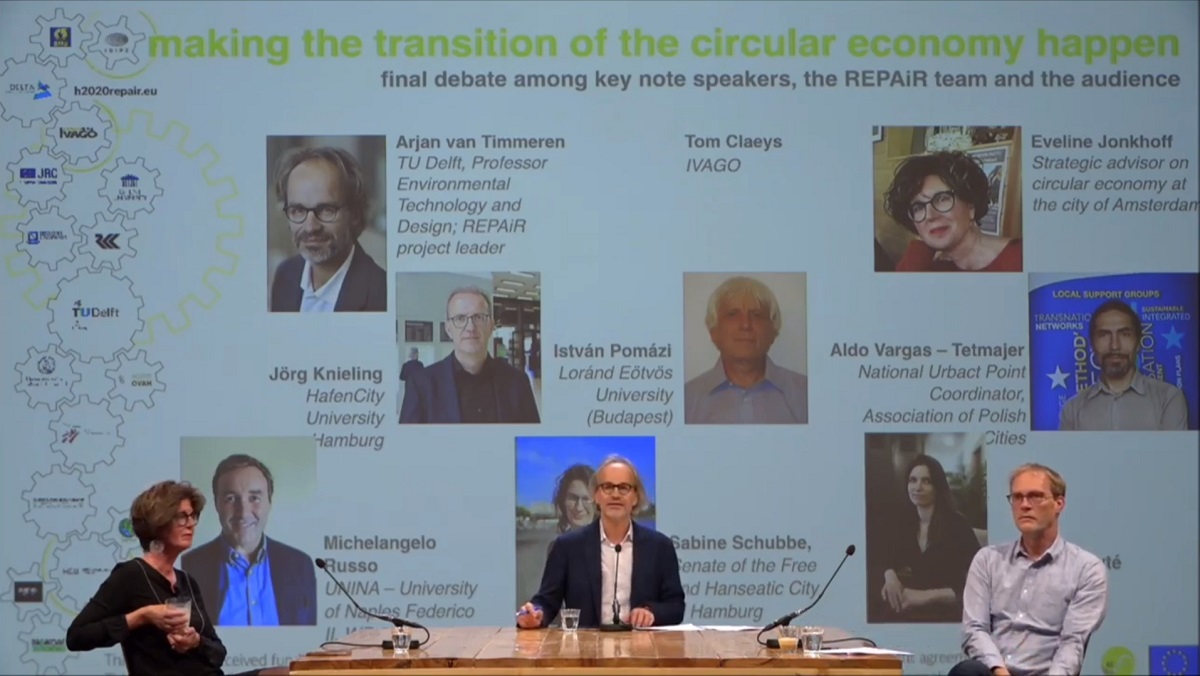
REPAiR Final Event
The event was organized fully on-line due to the COVID-19 pandemic. Still, we are confident that participants experienced an exciting and informative day that will help them push the limits further to a more circular society.
We are proud to present you the results of four intense and fruitful years of collaboration of the 18 REPAiR partners and local and regional stakeholders in Amsterdam, Naples, Ghent, Hamburg, Łodz and Pécs.
We have celebrated the ending of the REPAiR project with an informative and appealing one day event. In the morning with inspiring keynotes on the future challenges of the CE from European, Regional and local perspectives. Besides, we discussed with our sister H2020 projects UrbanWins, FORCE and CINDERELA. Also, through an extremely exciting and innovative on-line experience the REPAiR exhibition was shared with participants, presenting the results in detail in virtual exhibition rooms.
In the afternoon, parallel sessions explored the GDSE and the PULL methodology, discussed and benchmarked cities on their way towards a CE, and discussed the ins and outs of the sustainability assessment of eco-innovative solutions. The event was closed with an expert panel discussion on how to make the urgent transition towards a CE happen.
Download the full programme here.
Find videos from the event and speakers' presentations under the links within the programme below.
The programme (the 13th of October 2020)
Beyond REPAiR: making the transition of the circular economy happen
| 09.00 – 09.15 | Registration | ||
| 09.15 – 09.30 | Welcome speeches: Arjan van Timmeren, TU Delft, Professor Environmental Technology and Design – REPAiR project leader (video, presentation). |
||
| 09.30 – 10.20 | Invited Key-note speech: Francisco Javier Peinado, EC-EASME – Head of Sector – Natural Resources (video, presentation); Eveline Jonkhoff, Strategic advisor on circular economy at the city of Amsterdam (video, presentation); Aldo Vargas-Tetmajer, National Urbact Point Coordinator, Association of Polish Cities (video, presentation). |
||
| 10.20 – 10.30 | Short Break | ||
| 10.30 – 11.25 | Key results of REPAiR Alexander Wandl, TU Delft, REPAiR Scientific Coordinator (video, presentation). Panel discussion with the REPAiR work package leaders (video): Arjan van Timmeren, TU Delft, Professor Environmental Technology and Design – REPAiR project leader; Alexander Wandl, TU Delft, REPAiR Scientific Coordinator; Jens-Martin Gutsche, Gertz Gutsche Rümenapp – Stadtentwicklung und Mobilität, WP 2 leader; Bob Geldermanns, TU Delft, WP 3 leader; Jo Dewulf, Ghent University, WP 4 leader; Libera Amenta, UNINA – University of Naples Federico II, WP 5 co-leader; Andreas Obersteg, Hafencity University Hamburg, WP 6 leader; Viktor Varjú, Institute for Regional Studies HAS, WP 7 leader. |
||
| 11.25 – 12.35 | Key results from other H2020 projects Introduction: Denis Cerić, Institute of Geography and Spatial Organisation Polish Academy of Sciences, WP 8 leader; Invited contributions: Francesco Musco (IUAV), project UrbanWins – Innovative Strategic Plans for Urban Waste Reduction and Management (video, presentation); Hans Christian Christiansen (CPH) – project FORCE – Cities Cooperating for Circular Economy (video, presentation); Alenka Mauko Pranjić (ZAG) – project CINDERELA – New Circular Economy Business Model for More Sustainable Urban Construction (video, presentation). Panel discussion moderated by: Denis Cerić, Institute of Geography and Spatial Organisation Polish Academy of Sciences, WP 8 leader (video). |
||
| 12.35 – 12.45 | Opening of the REPAiR on-line Exhibition (link) and Resume of the morning session Arjan van Timmeren, TU Delft, Professor Environmental Technology and Design – REPAiR project leader. |
||
| 12.45 – 13.00 | REPAiR’s Results in detail – Interactive Parallel Sessions Introduction to parallel sessions (video) Marcin Dąbrowski, TU Delft (presentation); Sue Ellen Taelman, University of Gent (presentation); Libera Amenta, UNINA – University of Naples Federico II (presentation). |
||
| 13.00 – 14.00 | Lunch break | ||
| 14.00 – 15.45 | Session 1 Peri-Urban Living Labs and Geodesign Decision Support Environment as tools for co-creation (video)Moderated by: Alexander Wandl, TUD. Panelists: Libera Amenta, UNINA; Gustavo Arciniegas, TUD; Anna Attademo, UNINA; Michele Campagna, University of Cagliari; Maria Cerreta, UNINA; Giulia Lucertini, Iuav University of Venice; Hilde Remøy, TUD; Carl Steinitz, Harvard Graduate School of Design; Dirk Wascher, SUSMETRO. |
Session 2 Assessing Circular Economy Transitions (video, flyer)Moderated by: Marcin Dąbrowski, TU Delft; Panelists: Gilda Berruti, UNINA; Andreas Obersteg, HCU; Varjú Viktor, RKI. |
Session 3 Sustainability Assessment of Eco-innovative Strategies (video)Moderated by: Bob Geldermans, TUD. Panelists: Tom Claeys, IVAGO; Lorie Hamelin, Federal University of Toulouse; Eveline Jonkhoff, City of Amsterdam; Sue Ellen Taelman, UG; Davide Tonini, JRC. |
| 15.45 – 16.00 | Short Break | ||
| 16.00 – 17.00 | Making the transition of the circular economy happen The final debate among keynote speakers, the REPAiR team and the audience (video) Moderator: Arjan van Timmeren, TU Delft, Professor Environmental Technology and Design – REPAiR project leader Panelists: Tom Claeys, IVAGO; Eveline Jonkhoff, Strategic advisor on circular economy at the city of Amsterdam; Jörg Knieling, HafenCity University Hamburg; István Pomázi, Loránd Eötvös University (Budapest); Michelangelo Russo, UNINA – University of Naples Federico II; Sabine Schubbe, Senate of the Free and Hanseatic City of Hamburg; Rusné Šileryté, TU Delft, geoFluxus; Aldo Vargas-Tetmajer, National Urbact Point Coordinator, Association of Polish Cities. |
||
| 17.00 – 17.15 | Closing Arjan van Timmeren, TU Delft, Professor Environmental Technology and Design – REPAiR project leader |
||
INTERACTIVE PARALLEL SESSIONS - SHORT DESCRIPTION
Session 1: Peri-Urban Living Labs and Geodesign Decision Support Environment as tools for co-creation
Session 2: Assessing Circular Economy Transitions
Session 3: Sustainability assessment of eco-innovative strategies
Speakers and panelists
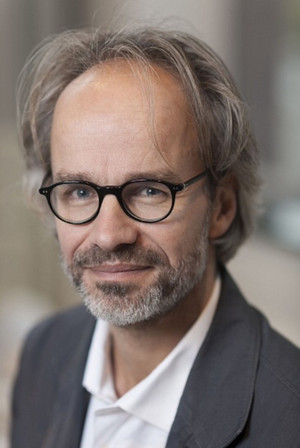
Arjan van Timmeren
Prof.dr.ir. Arjan van Timmeren (1969) is full professor at Delft University of Technology (TU Delft), Faculty of Architecture and the Built Environment, Department of Urbanism, chair ‘Environmental Technology & Design’ (https://www.tudelft.nl/en/architecture-and-the-built-environment/about-the-faculty/professors/profdrir-a-van-timmeren/).
Among other Eu projects, Prof. Van Timmeren is Principle Investigator and leading the REPAiR project (‘REsource Management in Peri-urban Areas: Going Beyond Urban Metabolism’). Find all about it on: http://h2020repair.eu.
Besides of this he is also Principle Investigator of the joint initiative by TUD (Delft), MIT (Boston) and WUR (Wageningen) ‘AMS Institute’ (Institute for ‘Advanced Metropolitan Solutions’), in Amsterdam together with public and private stakeholders and citizen(platforms). AMS Institute is a Knowledge institute with at the moment over 100 research projects and an approximate turnover of over 60M€ on projects related to circularity, mobility, resilience, data and intelligence and several other fields relevant for metropolitan areas from the perspective of sustainability and urban intelligence. Find out all about it on: https://www.ams-institute.org/urban-challenges/
Over the years his work has focused on the integration of the concept of sustainable development in the field of architecture, urbanism and building technology in both practice and academia, with lately emphasis on Circular Economy, Urban Metabolism, Urban Climate (Green-Blue systems) and Smart cities, and -citizens. He is project leader of many European and national research projects and publishes regularly on these. Arjan van Timmeren has seats in several (inter)national steering groups, quality teams, scientific boards and is lecturing all over the globe.
Please check ‘Ubikquity and the Illuminated City’ regarding his view on urban intelligence (https://issuu.com/laurencehenriquez/docs/ubikquity_and_the_illuminated_city) and his latest book and platform launched ‘Under Pressure: Water and the City’ regarding the specific theme of water (https://underpressure.online/ ).
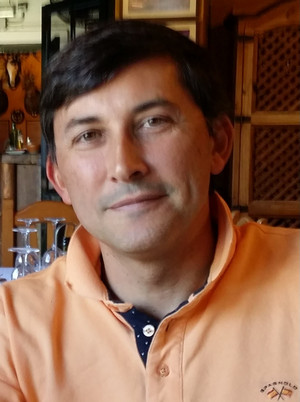
Francisco Javier Peinado
Javier Peinado is Head of Sector of Natural Resources and Ecosystems in the European Commission Executive Agency EASME. He has been the last 6 years implementing H2020 workprogramme in these areas leading a highly qualified and committed team of project advisers monitoring project grants and organising H2020 call for proposals. Previously worked in DG RTD European commission in the field of ecological technologies, water pollution, and implementation of industrial pollution prevention and control directive. His background is industrial chemical engineer by the University of Seville.
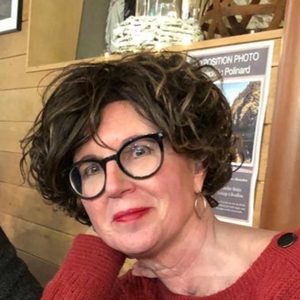
Eveline Jonkhoff
Eveline Jonkhoff studied Biology at the University of Amsterdam with specialisations on Environment & Society, toxicology and environmental legislation. She started her career at the City of Amsterdam in the field of waste-to-energy and sustainable development as project-leader, advisor and marketing manager. Since 2008 she worked as strategic advisor on sustainable development. And as a logical next step since 2013 with a main focus on circular economy.
She is responsible for the Amsterdam Circular Economy program which started in 2015 with an in depth research into the potential of a circular economy. Amsterdam was awarded the World Smart City Award in 2017 based on the integrated strategy and program on circular economy.
Recently the city launched the new integrated 5 year strategy Amsterdam Circular and the first City Portrait showing the local and global impact of the city on environment and society. Both the strategy and the city portrait are based on the Doughnut Economy.
From 2017 to 2019 Eveline Jonkhoff was also chairing the Eurocities task force on circular economy.
https://www.amsterdam.nl/en/policy/sustainability/circular-economy/
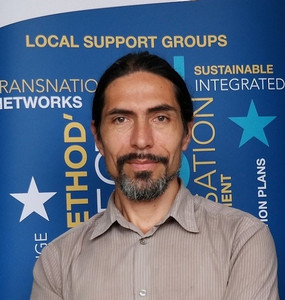
Aldo Vargas-Tetmajer
Coordinator of the National URBACT Contact Point at the Association of Polish Cities since 2013. He supervises the activities of Polish project partners URBACT, deals with the promotion of calls for proposals and achievements of URBACT networks. He also facilitates workshop meetings for URBACT network partners.
For many years he worked at the Institute of Urban Development in Krakow, where he was responsible for international cooperation. He was a member of teams implementing research and development projects in EU, Interreg, URBACT and Framework Programmes in the field of sustainable urban development. He was also responsible for communication and cooperation with domestic and foreign institutions in the field of urban development.
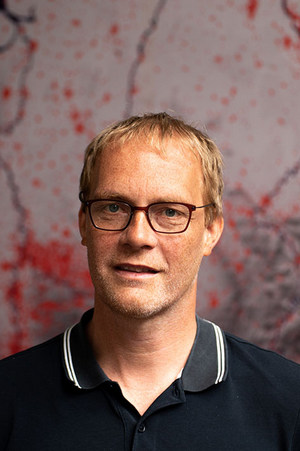
Alexander Wandl
Dr. Alexander Wandl is an Urbanist and Senior Researcher at the Chair of Environmental Technology and Design, at the Faculty of Architecture and the Built Environment, Delft University of Technology. His research focuses on developing sustainable urbanization, using an extended territorial metabolism approach and integrating (GIS-supported) methods and tools from different disciplines. As scientific coordinator of the Horizon 2020 financed research project REPAiR—Resource Management in peri-urban areas—he is at the forefront of developing spatial strategies, which support the transition towards more circularity. He specifically focuses on the challenges related to the sustainable development of dispersed urban areas and peri-urbanization processes in Europe.
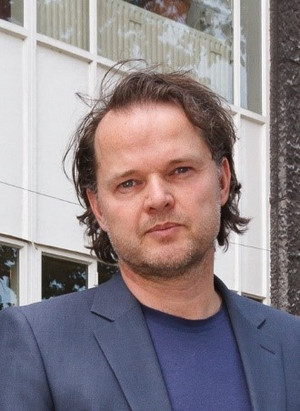
Bob Geldermanns
Bob Geldermanns’ background is in Industrial Ecology and Sustainable Architecture. His doctoral thesis, titled ‘Securing Healthy Circular Material Flows in the Built Environment’, focuses on architectural design, materialization, and operation in relation to spatial distribution of material flows. Currently, Bob is affiliated with the Department of Architectural Engineering + Technology as a researcher, and with the Department of Campus Real Estate as Circularity consultant. Furthermore, he is closely involved in the interdisciplinary Circular Built Environment (CBE) Hub at Delft University of Technology. In the past, he has worked for, amongst others, the Amsterdam Institute for Advanced Metropolitan Solutions, Circular City Program, and for the Dutch Ministry of Economic Affairs, Climate & Energy Program.
Within the REPAiR project, Bob Geldermanns is a leader of Work Package 3 on ‘Developing and Implementing Territorial Metabolism Based Representation and Process Models’ and member of the Executive Board.
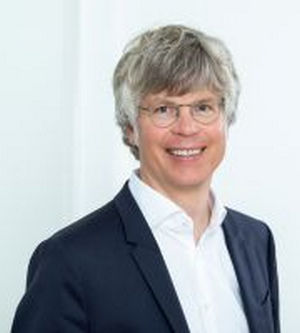
Jens-Martin Gutsche
Jens-Martin Gutsche is a urban planner and co-owner of Gertz Gutsche Rümenapp – Stadtentwicklung und Mobilität (GGR), a consulting firm located in Hamburg and Berlin. He holds a PhD of Hamburg Technical University. His research and consulting activities focus on urban and regional development, settlement structures as well as the fiscal effects of public planning. Together with Max Bohnet he is leader of work package 2 of the REPAiR project, which has developed the Geodesign decision support environment (GDSE), an online-tool for the co-creation and co-evaluation of eco-innovative solutions and strategies for the CE transitions, using the input from all other project work packages.
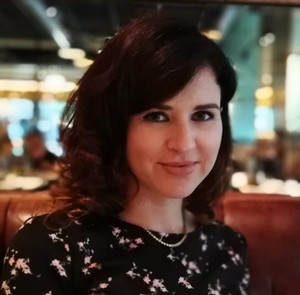
Libera Amenta
Libera Amenta is a Post-Doc Researcher in the DiARC at the University of Naples Federico II, Italy, where she teaches Urbanism in the “Laboratory of Urbanism” – at the master level – in the MAPA Course “Laurea Magistrale in Architettura Progettazione Architettonica”. She has been, until recently, also a Post-Doc Researcher in the Department of Urbanism at TU Delft, Chair of Environmental Technology and Design, in the Netherlands, where she taught Urbanism in the Course “Spatial Strategies for the Global Metropolis”, and where she is now a Guest Researcher. Since 2016, she has been carrying out research on topics regarding the circular regeneration of wastescapes as a member of the EU-funded Horizon 2020 REPAiR project (at UNINA and TU Delft) and other national and international research, as the H2020 project Urban_WINS and the Regional Project for Veneto Region in Italy “Opportunità”.
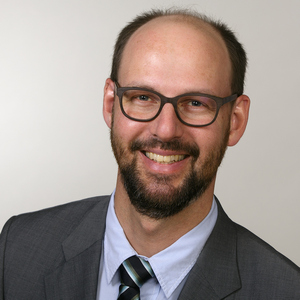
Andreas Obersteg
Andreas Obersteg (Dipl.-Geogr.) is Research Associate at the department of Urban Planning and Regional Development at HafenCity University Hamburg. He graduated in economic and social geography with minor subjects in spatial planning, regional development and business administration at TU Munich and University Tours (France). His research is comprised of several European projects on city-regional development and governance, urban-rural partnerships and circularity in city regions.
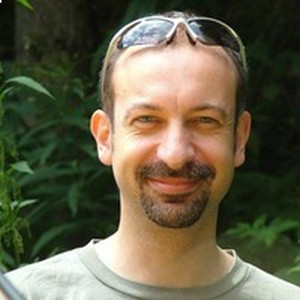
Viktor Varjú
Viktor Varjú (PhD) is a senior research fellow at KRTK Institute for Regional Studies. He holds a PhD in Earth Sciences and master’s degrees in geography and sociology. His main research areas are social aspects of regional development, renewable energy, circular economy and other environmental-related topics. He has published on environmental sociology and environmental policy integration in regional and spatial development.
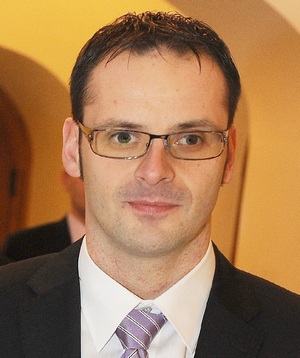
Denis Cerić
Denis Cerić is a PhD candidate and assistant at the Department of Urban and Population Studies, Institute of Geography and Spatial Organisation, Polish Academy of Sciences. His broad research interest is tourism geography, international cooperation and cross-border studies. Within the REPAiR project, Denis Cerić is a coordinator of dissemination and exploitation activities of the consortium.
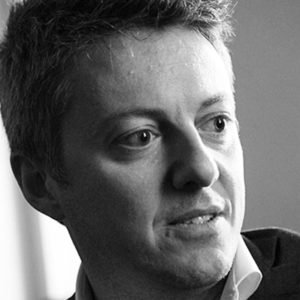
Francesco Musco
Prof. Francesco Musco, PhD, architect and planner. He is an associate professor in Urban Planning at the Iuav University of Venice, and he is a director of the graduate degree programme in Planning and Policies for Cities, Territory and Environment and director of the Erasmus Mundus Master Course on Maritime Spatial Planning. Deputy Rector for Iuav Research and member of CORILA Consortium for Coordination of research activities concerning the Venice Lagoon System.
His research interest mainly focuses on urban planning and sustainability, urban regeneration, policy design, urban resilience, climate change and strategies of mitigations and adaptions, energy and environmental planning, circular economy and urban metabolism, maritime spatial planning and coastal zones management.
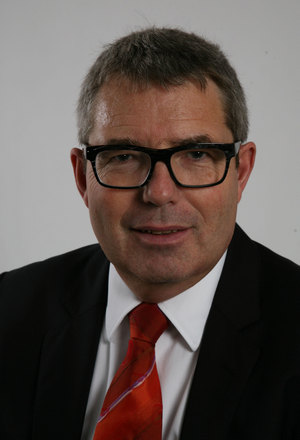
Hans Christian Christiansen
Hans Christian Christiansen is an expert in managing major cooperation projects both internally in the city and projects with European partners. Mr. Christiansen has specific experience with the environmental and city planning area, both from administrative work and from practice concerning inspections, planning and operations. The main focus areas today are Smart City topics, Waste recycling, Sustainable Urban development and Sustainable Mobility.
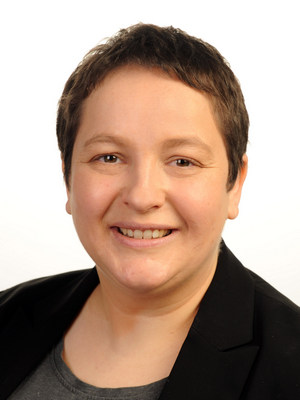
Alenka Mauko Pranjić
Dr. Alenka Mauko Pranjić is geologist, working in the field of the material science and recycling at the Slovenian National Building and Civil Engineering Institute (ZAG). She is head of the Department of Materials. She has been involved and coordinated different national and international research projects, mainly in the field of recycling and use of Secondary Raw Materials (SRM) based products in the construction industry. Currently, she is coordinator of the H2020 CINDERELA project (New Circular Economy Business Model for More Sustainable Urban Construction). Beside recycling and circular economy for construction industry her research is focused on life cycle assessment, (3D) microstructural analytics of materials, soil and water remediation. In her work she is cooperating with different industries focusing on business orientated and sustainable solutions.
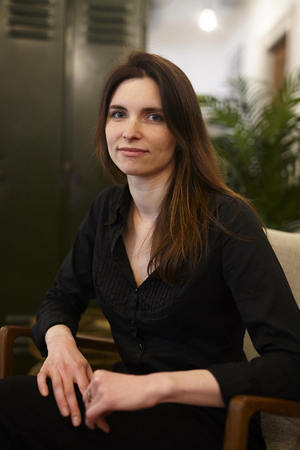
Rusné Šileryté
Rusné Šileryté is a PhD researcher at the Chair of Environmental Technology and Design in Delft University of Technology. Her PhD research has been closely related to the REPAiR project and focused on the changing material flows due to the (desired) transition towards a circular economy and assessing how significant are the impacts of these changes in light of the set city, national or international targets. During the 4 years of the project she has significantly contributed to developing the Geodesign Decision Support Environment and is currently running a spin-off company geoFluxus that aims to upscale the web application into an open source software for material flow data analysis, policy feedback and secondary material exchange.
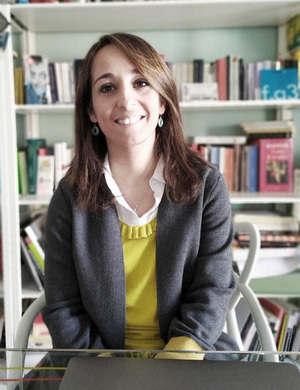
Anna Attademo
Anna Attademo, a PhD in Urban and Territorial Planning, is a Post-Doc Researcher in the DiARC at the University of Naples Federico II, Italy, where she teaches Urban Planning in the Bachelor Course “Sustainable Development and Territorial Networks”. Since 2016, she is a member of the EU-funded Horizon 2020 REPAiR project. She has participated in international conferences and published in scientific journals, working on the themes of the circular economy and the regeneration of peri-urban areas, also through the active involvement of local communities. She co-edited the volume “Fringe Shifts. Transforming Planning for New Suburban Habitats”, based on her research within URBACT III project “Sub>urban. Reinventing the fringe”, for increasing social and urban resilience within peri-urban fringes (2015-2018).
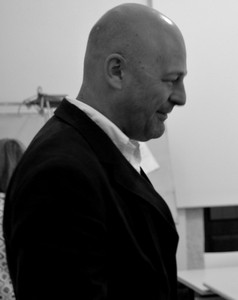
Michele Campagna
Dr Michele Campagna is Professor of spatial planning at the Department of Civil and Environmental Engineering and Architecture of the University of Cagliari, Italy. His research concerns geodesign, planning support systems (PSS), metaplanning, and the use of geographic information (SDI, VGI, SMGI) and digital methods and technologies in spatial planning. More info at https://people.unica.it/campagna/
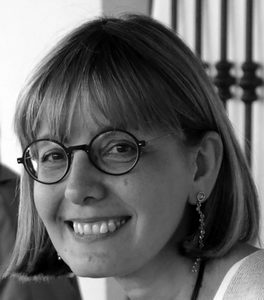
Maria Cerreta
Architect, PhD in “Evaluation Methods for the Integrated Conservation of Architecture, Urban and Environmental Heritage”, she is an associate professor of Environmental Assessment and Evaluation (SSD ICAR/22) at the Department of Architecture (DiARC), University of Naples “Federico II”, Italy. Coordinator of the Second Level Master in “Planning and Sustainable Design of the Port Areas” and Director of the Advanced Course in “Real Estate Market and Urban Regeneration (MIRU)”, and Associate Professor at CNR-IRISS since 2019. She carries out research in the fields of appraisal and multidimensional evaluations in hybrid, collaborative and interactive decision-making contexts for urban design and spatial planning, developing Adaptive Decision Support Systems for the enhancement of cultural heritage and landscape, for urban regeneration and spatial transformations, also with the aid of Geographic Information Systems (GIS), integrating methods and tools specific to economic, multi-criteria and multi-group evaluations.
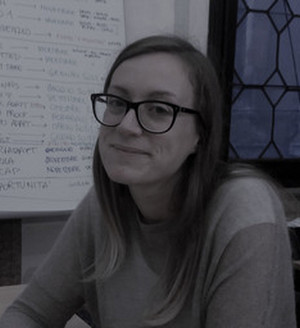
Giulia Lucertini
Giulia Lucertini, PhD., is a planner and researcher at the Iuav University of Venice, and associated researcher at FEEM. Since 2013 she works at the Climate Change Lab as an expert in resilient spatial planning, evaluation, and analysis of public policies. In last year her main research interests are about the circular economy and urban metabolism linked to land use planning for more sustainable and regenerative exploitation and consumption of natural resources. She is mainly focused on the assessment and construction of projects and strategies for urban and rural development (in their interaction and dependence) with particular attention to local food policies and more generally local agriculture. She has been involved in many research projects, national and international, that explored different aspects of resilience, planning and use of resources.
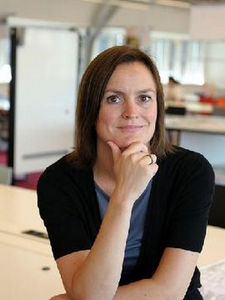
Hilde Remøy
Hilde Remøy is an associate professor at the Delft University of Technology, Faculty of Architecture, Department of Management in the Built Environment (TU Delft). She is a board member and past president of the European Real Estate Society (ERES). Hilde is experienced in international and Dutch scientific and practice research and is an editorial board member of several international journals. Hilde teaches adaptive reuse and redesign of processes at TU Delft and other education institutes. Her work concentrates on resilience and adaptive reuse of real estate, including heritage, specifically focusing on adaptability and value development. In the REPAiR project, Hilde is the leader for the Amsterdam Peri-Urban Living Lab and member of the executive board.
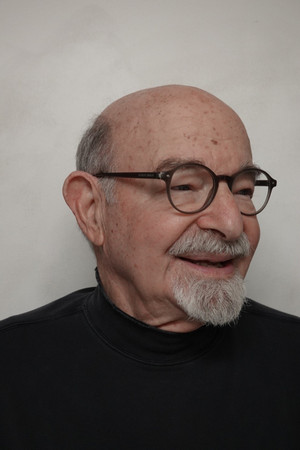
Carl Steinitz
Carl Steinitz is the Alexander and Victoria Wiley Professor of Landscape Architecture and Planning Emeritus at Harvard Graduate School of Design, and Honorary Professor at the Centre for Advanced Spatial Analysis, University College London. He began his affiliation with the Harvard Laboratory for Computer Graphics and Spatial Analysis in 1965. In 1967, Professor Steinitz received his PhD degree in City and Regional Planning, with a major in urban design, from the Massachusetts Institute of Technology (MIT).In 1984, the Council of Educators in Landscape Architecture (CELA) presented Professor Steinitz with the Outstanding Educator Award for his “extraordinary contribution to environmental design education” and for his “pioneering exploration in the use of computer technology in landscape planning”. He has been honored as one of Harvard University’s outstanding teachers. Professor Steinitz is principal author of “Alternative Futures for Changing Landscapes”, Island Press, 2003, and author of “A Framework for Geodesign”, Esri Press, 2012. He has lectured and given workshops at more than 150 universities, and has several honorary degrees.
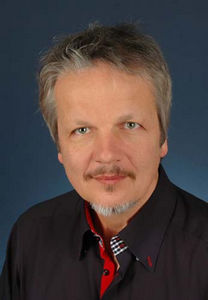
Dirk Wascher
Dirk M. Wascher holds academic degrees in landscape planning from Germany and the United States (University of Washington, Seattle). He has been a member of the European Environment Agency Task Force in Brussels, Programme Officer at the European Centre for Nature Conservation and Senior Researcher at Wageningen UR. As managing director of the consultant company SUSMETRO, Mr Wascher provides expertise on landscape assessment, metropolitan food planning and transition management towards sustainable solutions. – e.g. for the German IBA in the city of Heidelberg and the Federal State of Thuringia or to Phytowelt in implementing the Interreg Project BIVAC on bio-value chains. Mr. Wascher has taught landscape architecture at the University of Michigan, Wageningen University as well as European environmental policy at the University of Dayton. He is currently the Innovation Manager of the H2020 research project FoodSHIFT2030 (Food System Hubs Innovating towards Fast Transition by 2030: Citizen-driven transition of the European food system towards a low carbon, circular future), and leader of the work package ‘WP2 Accelerating the Food Innovation Solutions’.
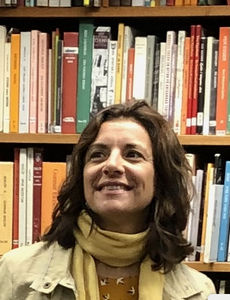
Gilda Berruti
Gilda Berruti, architect and PhD, is an Assistant Professor of Urban Planning at the Federico II University of Naples. Her research interests include public spaces between urban form and social dimension, inclusive urban policies and plans, the sustainable city as an aspect of the new urban question. Recently, she is investigating the relationship between planning rules and urban informalities.
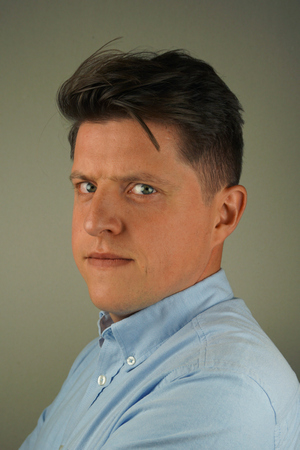
Marcin Dąbrowski
Dr. Marcin Dąbrowski is an assistant professor at the Section of Spatial Planning and Strategy in the Department of Urbanism, Faculty of Architecture and the Built Environment, Delft University of Technology, where he conducts research and teaches in the fields of urban and regional planning as well as territorial governance. He has a background in political science and regional studies, however, his research interest spans across many topics related to the governance of territory, from regional and urban strategies to circular economy, or energy transition, to regional development policies, urban climate change adaptation, integration of planning with flood risk management, stakeholder engagement in planning, and the evolution of spatial planning systems in Europe. He has also published extensively on various aspects of EU Cohesion Policy, on aspects ranging from its governance to impacts on citizens’ identification with the EU. Marcin is the lead editor of the Early Career Section of Regional Studies, Regional Science journal and is one of the leaders of the Regional Studies Association’s Research Network on EU Cohesion Policy.
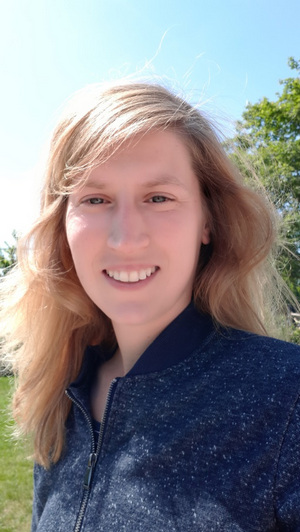
Sue Ellen Taelman
Sue Ellen Taelman is an environmental engineer, graduated in 2012 at Ghent University. She started a PhD career at the faculty of bio-science engineering in the research group Sustainable Systems Engineering, with focus on a quantitative assessment of the sustainability of multiple types of algae cultivation and processing systems, performed in the context of an European Interreg project and a Flemish one. As a continuation of Sue Ellen Taelman’s scientific career, in 2016 she started to work on the H2020 project REPAiR as leader of the work package dealing with sustainability assessment of (peri-)urban waste management systems where a novel framework has been developed and applied to multiple European cities.
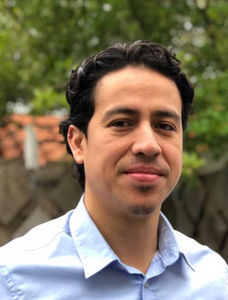
Gustavo Arciniegas
Gustavo Arciniegas (PhD) is an independent consultant with +10-years experience in collaborative GIS, Geodesign and sustainable spatial planning. His background is Geoinformatics and he holds a PhD degree in Map-based decision support tools for collaborative land use planning. His research interests are Geodesign, Sustainable Development, and Planning Support Systems that include collaborative instruments (hardware and processware). He is the lead consultant and director of Geo-Col GIS and collaborative planning, a Netherlands-based consultancy firm/SME, which currently is a partner of the h2020 project consortium of REPAiR, which focuses integrating Geodesign, Life Cycle Analysis, Sustainability Assessments and Living Labs for improving metropolitan waste management in European cities. Gustavo is also currently involved in the H2020 research project FoodSHIFT2030 project (Food System Hubs Innovating towards Fast Transition by 2030: Citizen-driven transition of the European food system towards a low carbon, circular future), in the work package ‘WP2 Accelerating the Food Innovation Solutions’.
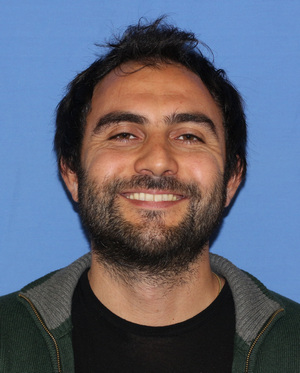
Davide Tonini
Davide Tonini is an environmental engineer, graduated in 2009 at Padova University, Italy. He started a PhD career at the faculty of environmental engineering at Technical University of Denmark (DTU) in 2009 where he focussed on the quantitative assessment of the sustainability of waste and (bio)energy technologies. As a continuation of Davide Tonini’s scientific career, in 2017 he joined the Joint Research Centre (JRC) of the European Commission where he support the Commission in a number of projects related to assessment of circular economy solutions and policy. Among the others, the plastic strategy, construction and demolition waste, organic fertilisers, and food waste.
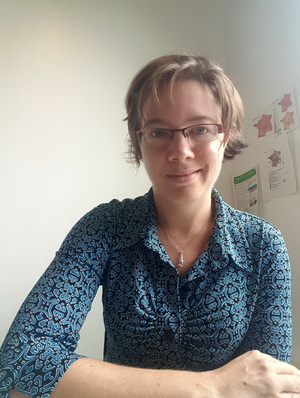
Lorie Hamelin
Lorie Hamelin is a senior researcher at the Federal University of Toulouse, a laureate of the French presidential climate call “Make our planet great again” (Project Cambioscop), and currently heads a research team of 3 postdocs and 5 PhDs. Her research lies at the crossroads of bioeconomy, circular economy & renewable energy systems, focusing on the environmental- and cost- performance of strategies to transit towards a low fossil carbon economy, at the national or regional scales. Life Cycle Assessment, Energy System Analysis and Geographical Information Systems are the key analytical tools she applies and develop in her research. Prior to her research in France, Dr. Hamelin worked as an assistant professor in the Centre for Life cycle Engineering at the University of Southern Denmark, and has been recruited in the framework of the European ERA Chair Programme to work as a senior scientist on bioeconomy research in Poland. Dr. Hamelin currently serves as an expert in the International Scientific Reference Group of the Swedish Biogas research Centre, co-lead a Sectorial Working Group (SWG) of the Ecosystem Services Partnership (ESP) network on circular bioeconomy and is member of the European Energy Research Alliance. Since 2010, Dr. Hamelin participated and served as a WP leader in 10 European bioeconomy-related projects, and is currently a partner in the H2020 project NEGEM, where she studies the role of soil carbon sequestration as a practice to induce negative emissions.
Tom Claeys
After graduating in 2004 as political scientist, Tom Claeys have taken on several management and consulting roles for the public and retail sector. Since January 2017 he is working as manager Strategy, Development and Waste flow management for IVAGO. IVAGO is the intercommunal association responsible for the waste management in Ghent and Destelbergen. Tom Claeys’ department is responsible for IT, Infrastructure (including for the civic amenity sites), Strategy&innovation, Routing and waste flow management.
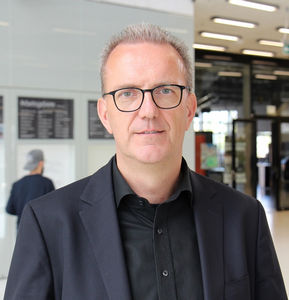
Jörg Knieling
Jörg Knieling heads the Institute of Urban Planning and Regional Development at HafenCity University Hamburg (HCU), Germany, with a team of about 15 scientists. His academic background is in urban, regional and environmental planning, and in political sciences and sociology, he holds a Ph.D. from the University of Hanover. He is member of the German Academy for Territorial Development in the Leibniz Association (ARL) and the Advisory Board of the German Federal Ministry of Territorial Development, and was ‘Directeur d’Etudes Associé’ of the Institute of Advanced Studies (IEA) in Paris and Visiting Professor at the Politecnico di Milano.
The institute’s main research fields are sustainable urban and regional development, climate change and territorial innovation, and related aspects of (transition) governance and planning theory. A focus has been set on the concept of territorial circularity (‘circular city’) studying different flows, e.g. land-use, energy, waste and food.
The institute has been participating in numerous international and national research projects, recently e.g. REPAIR, FORCE, Cities-4-People, mySMARTLife and CLEVER Cities under the HORIZON 2020 framework and the German Excellence Cluster CLICCS on climate change. Current book publications have been on Pathways to Great Transformation (2017), Climate Adaptation Governance (2016), Cities in Crisis (2016), and Soft Spaces in Europe (2015).
Further information:
https://www.hcu-hamburg.de/en/master/urban-planning/arbeitsgebiete/joerg-knieling/
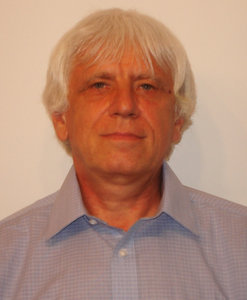
István Pomázi
István Pomázi, private professor at the Loránd Eötvös University (Budapest), former chief adviser of the Ministry for National Economy and Ministry for Environment. He holds a master’s degree in geography, PhD and habilitation in Earth Sciences. His main research fields are OECD, EU and Hungarian environmental policy, strategic planning, measuring environmental and social progress, the transition to circular economy and sustainability.
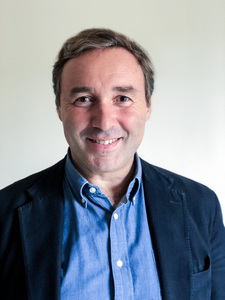
Michelangelo Russo
Michelangelo Russo is full Professor of Urban Planning and Dean of the Department of Architecture at the University of Naples Federico II. He is carrying out financed researches of national and international interest. His research activities, design-oriented, deal with the themes, the knowledge and the phenomena of urban design in relation to the changes of the contemporary cities, urbanized areas, landscapes, and the complex interaction between environment, space and ecology. Russo coordinates the Research Unit of Naples of the international network in the project REPAiR (Horizon 2020).
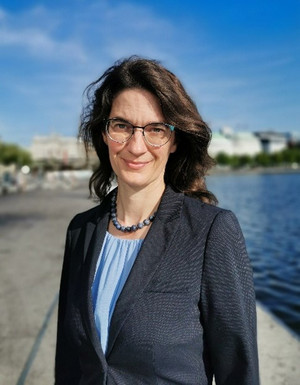
Sabine Schubbe
Sabine Schubbe holds an Engineering Degree in Landscape Architecture (University of Applied Science Osnabrück) and an Engineering Degree in Urban Development (Technical University Hamburg). Currently she is employed in the Department for European Affairs for the Senate Chancellery of the Free and Hanseatic City of Hamburg.
She is German vice-chair and Hamburg representative in the National Board of the Interreg North Sea Region Programme. In this function she cares for the thematic programming and advises and accompanies approved and potential beneficiaries during a project life cycle. For the City of Hamburg she develops and supervises EU-funded projects within the framework of Horizon.
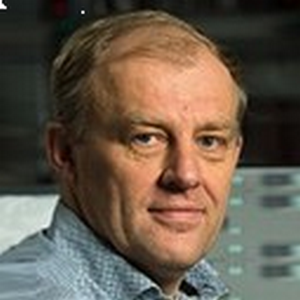
Jo Dewulf
Jo Dewulf works with the Department of Green Chemistry and Technology, Ghent University, Belgium. He leads the Sustainabile Systems Engineering group and focuses on clean production with a team that consists at the moment of about 20-25 doctoral and postdoctoral researchers, and 10-15 master students.
After engineering studies (maxima cum laude, 1992) and PhD (maxima cum laude, 1997) at Ghent University and post-doc research both at Ghent University and Delft University of Technology, he became assistant professor (2003), associate professor (2007) and full professor (2012) Clean Technology at Ghent University.
He was on leave for two years from his full professor position to join the European Commission – Joint Research Centre as senior scientist in the Sustainability Assessment Unit (2013-2015). He was guest professor at ETH Zürich with the Ecological Systems Design group (2019-2020).
For his scientific work, he obtained the prize of the laureate of the Royal Academy of Sciences and Arts of Belgium in 2008.
In his research, he heavily focuses on clean technology, i.e. searching for preventive actions within production processes and values chains. To do so, he makes thorough analyses at the process, plant and overall industrial system level, based on life cycle thinking and thermodynamic principles in order to find out opportunities for improvement.
Related events
CIRCULAR WEEK October 12-18, 2020
The REPAiR Final Event is listed in Circular Week, an international campaign which will consist series of events and initiatives devoted to the subject of circular economy and sustainable development that will take place throughout Europe. The Circular Week’s goal is to promote the idea of a circular economy, support sustainable business models and establish cooperation between interested stakeholders. Main goal of the initiative is to involve as many people, entities and institutions as possible in promoting and implementing circular economy concept. Everyone can become a co-organizer of International Circular Week. Grassroots initiative could take the form of e.g. goods exchange platforms, educational workshops, seminars, food sharing events or online webinars.
For more information visit https://circularweek.org/en

